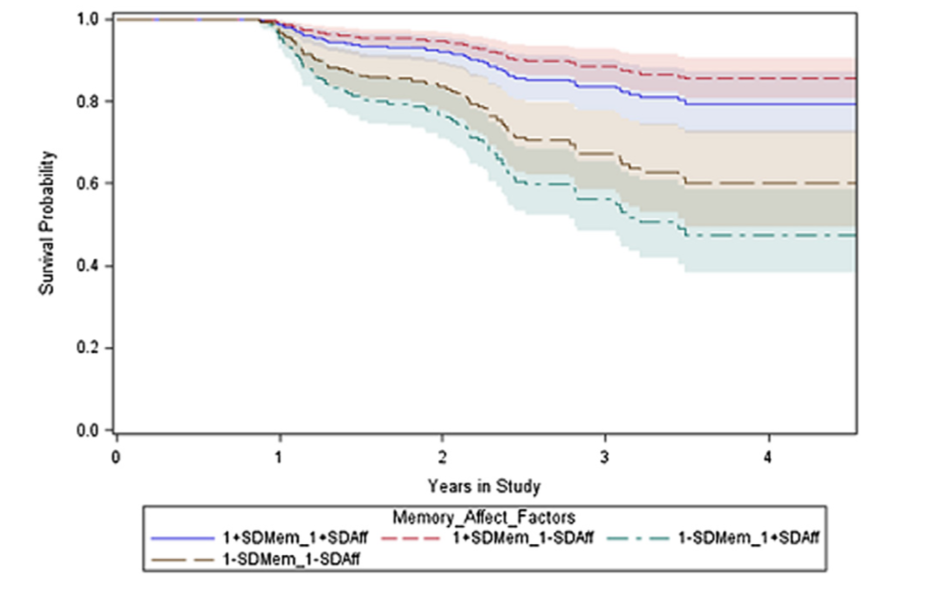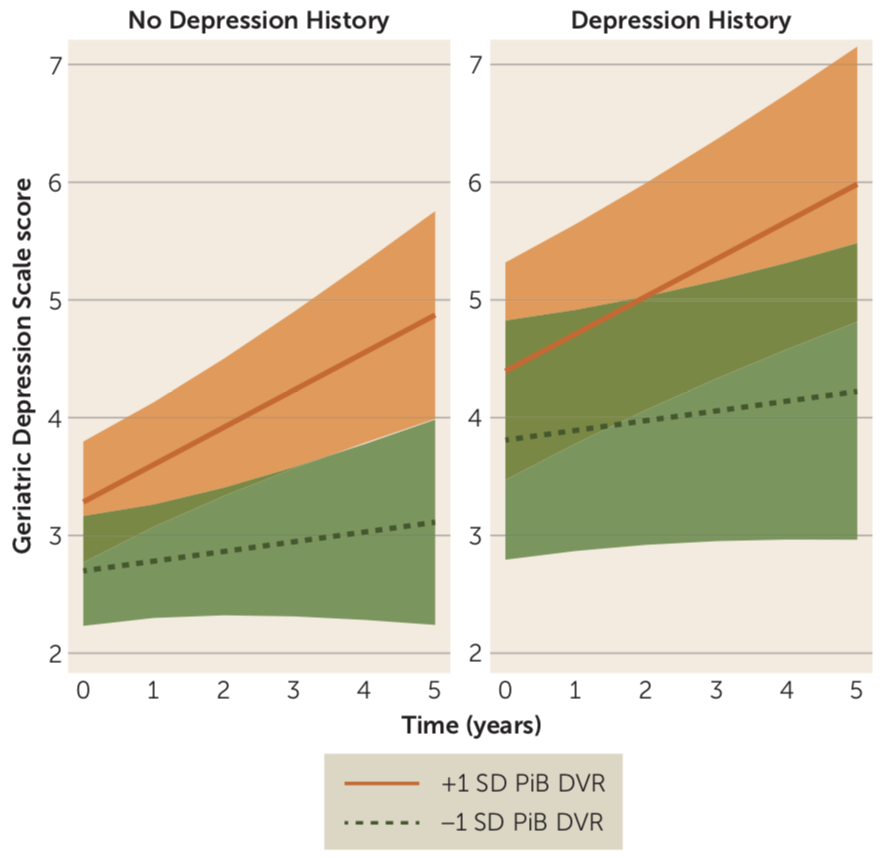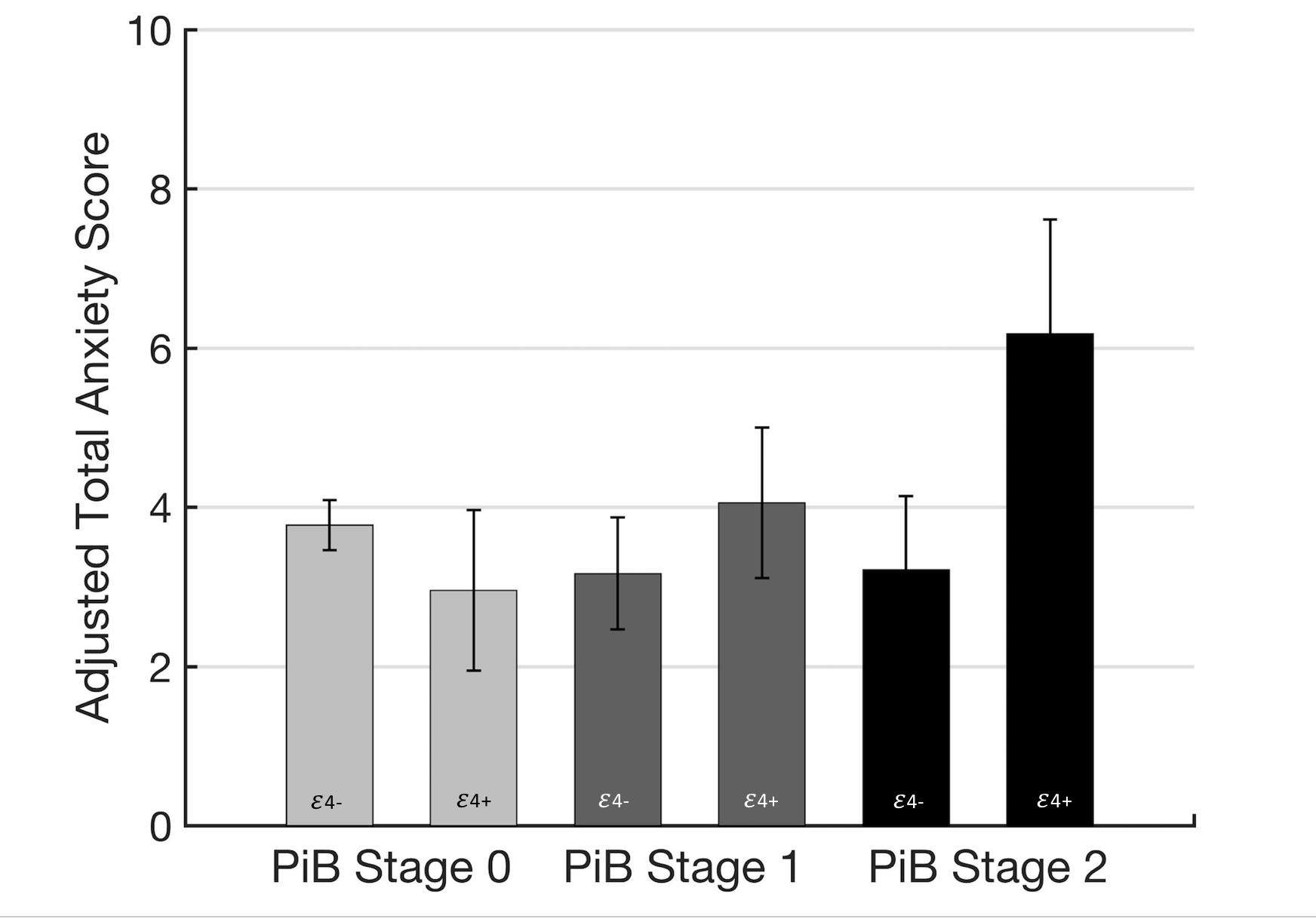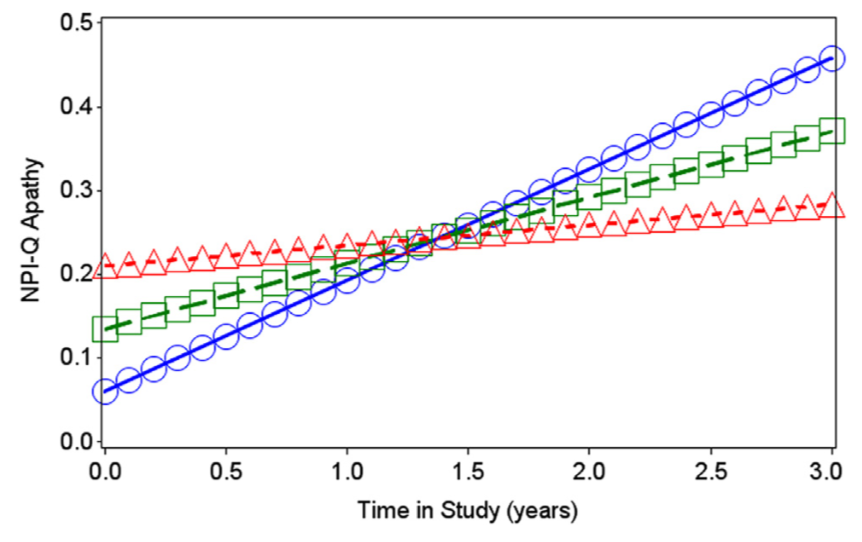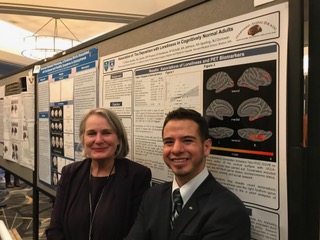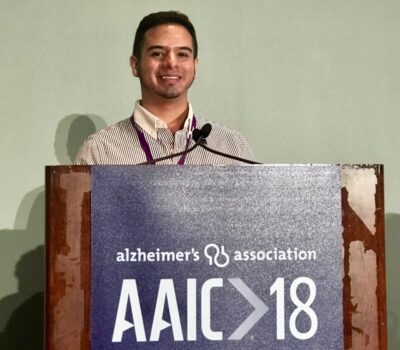Alzheimer’s disease (AD) begins with a long preclinical stage defined by the abnormal accumulation of amyloid-and tau proteins. These pathological proteins (biomarkers) can be measured in older adults using neuroimaging (amyloid-PET and tau PET). Transitional cognitive and neurobehavioral changes may occur during the AD pathophysiologic process prior to cognitive impairment. Identifying these transitional changes in older adults with biological markers of AD may define those at greatest risk of progression. Our research is focused on defining these transitional neurobehavioral changes in relation to brain pathology, structure and function in aging older adults. We work within the Harvard Aging Brain Study (HABS), a NIH/NIA-funded program project grant led by Drs. Reisa Sperling and Keith Johnson. HABS is an ongoing observational study of older adult volunteers with normal cognition who undergo longitudinal clinical and neuroimaging assessments. [HABS WEBSITE] Our projects, including our HABS research, are funded by the NIH/NIA and private philanthropy.
Traditional Neuropsychiatric Symptoms and Alzheimer’s Disease Biomarkers
Research from our group and others has shown that a range of psychiatric symptoms such as depression, anxiety, and apathy, are associated with cognitive decline and increased risk of dementia in older adults. Our work has defined early biomarker changes associated with these traditional neuropsychiatric symptoms in normal elderly and individuals with mild cognitive impairment. Collaborators have included Dylan Kirn, Drs. Heidi Jacobs, Bernard Hanseeuw, Dorene Rentz, Rebecca Amariglio, Gad Marshall and Jennifer Gatchel.
PUBLICATIONS
Longitudinal Association of Amyloid Beta and Anxious-Depressive Symptoms in Cognitively Normal Older Adults (AJP 2018)
New Clues to Preclinical Alzheimer’s Disease (Rosenberg 2018 AJP commentary)
Novel Neuropsychiatric Symptoms and Alzheimer’s Disease Biomarkers
Emotional and behavioral changes in cognitively normal older people may be direct manifestations of Alzheimer disease (AD) pathophysiology at the preclinical stage, prior to the onset of mild cognitive impairment. However, relatively little is known of the natural history of these neurobehavioral changes. Our work investigates whether subjective and/or subtle objective declines in social function may be very early symptoms of AD. Recognizing these changes may enhance the identification and treatment of older individuals at high risk for progression to MCI or AD dementia.
PUBLICATIONS
Loneliness as a Marker of Brain Amyloid Burden and Preclinical Alzheimer Disease (Rosenberg JAMA Psychiatry 2016 Commentary)
Loneliness, depression and cognitive function in older U.S. adults (IJGP 2016)
EXPLORE
If you’re interested in learning more about this area of Alzheimer’s Disease research, here are links to relevant scientific articles from thought leaders in the field.
PET staging of amyloidosis using striatum (Hanseeuw BJ et al., Alzheimer’s and Dementia, 2018)
For more information about Alzheimer’s Disease and aging, go to: https://www.nia.nih.gov/
FUNDING & ACKNOWLEDGEMENTS
Our research is funded by the following sources:
- NIA R21: Loneliness and Preclinical Alzheimer’s disease (Project Number: 5R21AG054953-02; 2017- present)
- Alzheimer’s Disease Neuropsychiatric Research Fund (2015- present)
- Research into the Healthy Aging Brain Fund (2017-present)
Our research is possible through the collaboration and support from our colleagues at the Harvard Aging Brain Study. Thank you to the entire Harvard Aging Brain team and to our study participants.
Reisa Sperling, MD, Keith Johnson, MD, Dorene Rentz, PsyD, Rebecca Amariglio, PhD, J. Alex Becker, PhD, Rebecca Betensky, PhD, Deborah Blacker, MD, Rachel Buckley, PhD, Randy Buckner, PhD, Jasmeer Chhatwal, MD, PhD, Brad Dickerson, MD, Michelle Farrell, PhD, Jennifer Gatchel, MD, PhD, Stephen Gomperts, MD, PhD, Doug Greve, PhD, Edmarie Guzman-Velez, PhD, Bernard Hanseeuw, MD, PhD, PhD, Brad Hyman, MD, PhD, Heidi Jacobs, PhD, Cristina Lois, PhD, Gad Marshall, MD, Scott McGinnis, MD, Beth Mormino, PhD, Kate Papp, PhD, Enmanuel Pardilla-Delgado, PhD, Cleofe Peña Gomez, PhD, Julie Price, PhD, Deepti Putcha, PhD, Yakeel Quiroz, PhD, Jennifer Rabin, PhD, Liliana Ramirez Gomez, MD, Aaron Schultz, PhD, Dennis Selkoe, MD, Jorge Sepulcre, MD, Sietske Sikkes, PhD, Patrizia Vannini, PhD, Hyun-Sik Yang, MD, Wai-Ying Yau, MD; Arabiye Artola, Clara Castelar, Tobias Estime, Colleen Fitzpatrick, Josh Fuller, Olivia Hampton, David Jin, Samantha Katz, Emily Kilpatrick, Justin Kim, Dylan Kirn, Hannah Klein, Evelyn Luner, Lyssa Manning, Hana Markova, Danielle Mayblyum, Kirsten Moody, Martha Muniz, Irina Orlovsky, Michael Properzi, Alejandra Restrepo, Aubryn Samaroo, Justin Sanchez, Matthew Scott, Amanda Sidwell, Paige Sparks, Heirangi Torrico-Teave, Steven Weise.


